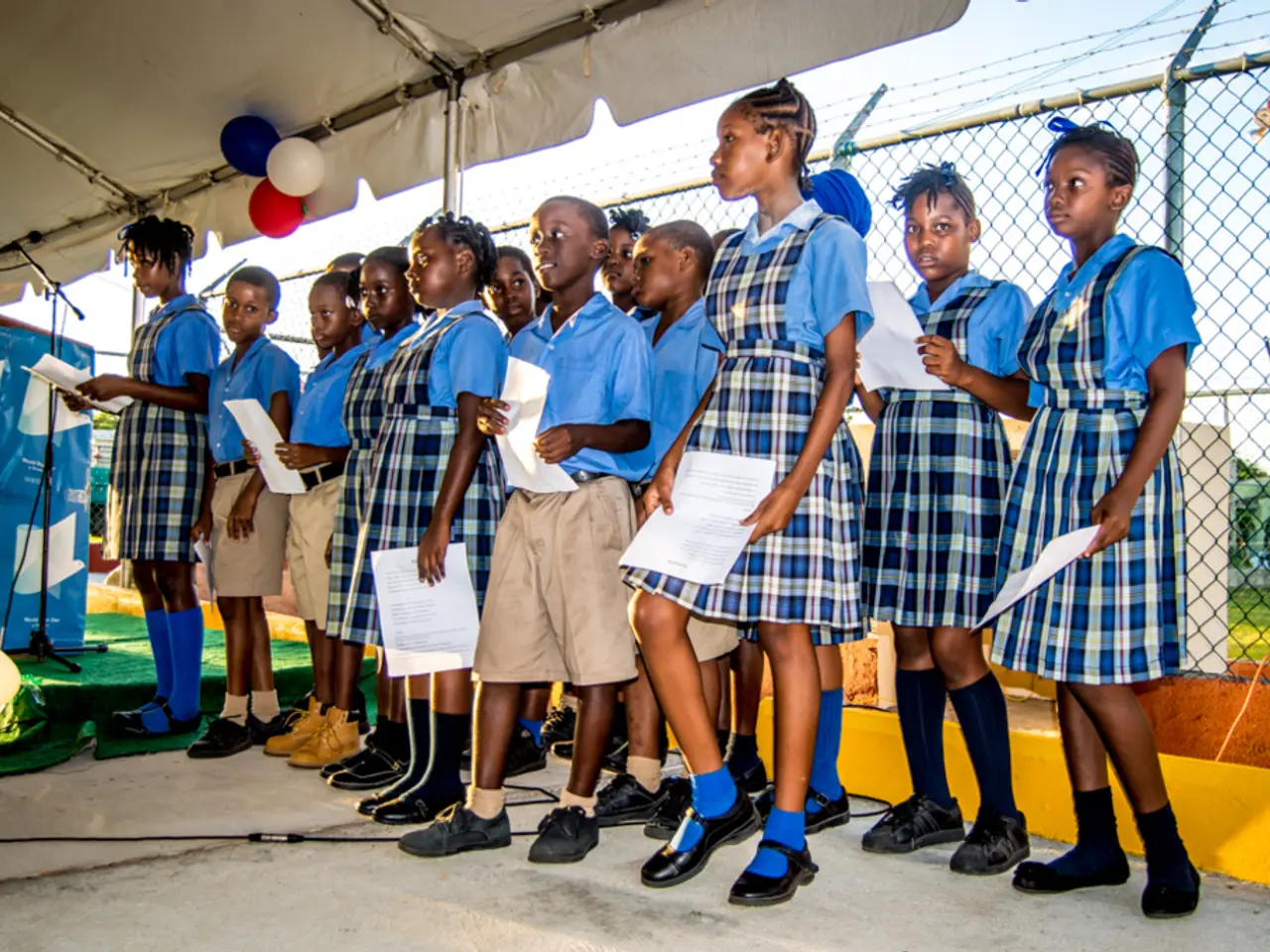Returning to School Amidst the American Police State: An Insight into modern Education
In the heart of America, schools are transforming into quasi-prisons, a shift that has raised concerns about the erosion of children's rights and the distortion of their understanding of individual freedoms.
The change is evident in the extensive security measures that schools have adopted. Gwinnett County Public Schools, for instance, has deployed AI-powered weapon detection systems, while State College Area School District requires visible student IDs, ID scanning, random searches, and frequent lockdown drills. These measures, often in partnership with law enforcement, involve the installation of surveillance technologies, increased security staffing including armed personnel, and formalized emergency preparedness protocols.
Critics argue that these policies foster an authoritarian atmosphere, restricting student freedoms and due process. One of the most significant concerns is the potential erosion of Fourth Amendment protections against unreasonable searches and seizures. Routine, random searches and constant surveillance have become a norm in many schools, shaping students’ conception of authority as pervasive and disciplinary rather than protective.
Moreover, the long-term effects could include reduced expectations of privacy and autonomy, potential chilling effects on free speech and association, and the centralization of power and control in educational settings. These trends parallel broader concerns about state overreach and the diminution of individual liberty, as anticipated by thinkers like Alexis de Tocqueville.
The debate surrounding these policies is ongoing. Groups like the Young Democrats of America call for the removal of police and surveillance from schools, advocating instead for transformative, non-punitive approaches to school safety that protect youth rights and promote positive school climates.
Unfortunately, the impact extends beyond the erosion of constitutional rights. Kids as young as 4 and 5 years old are being subjected to harsh methods of punishment, including being pinned facedown on the floor, locked in dark closets, tied up, handcuffed, leg shackled, tasered, or placed in solitary confinement. These tactics, often used to punish kids for failing to follow directions or throwing tantrums, have led to children suffering from post-traumatic stress disorder, nightmares, anxiety, mistrust of adults in authority, as well as feelings of anger, depression, humiliation, despair, and delusion.
Furthermore, students are being brainwashed into adopting a worldview in which rights are negotiable, free speech is dangerous, the virtual world is preferable to the real world, and history can be extinguished when inconvenient or offensive. This shift in perspective could have long-lasting effects on the nation's youth, potentially hindering their ability to navigate complex social, political, and ethical issues in the future.
In conclusion, the militarization and securitization of America's schools pose a significant threat to children’s constitutional protections and distort their understanding of individual liberties. It is crucial to reevaluate and reform these policies to ensure a safe and nurturing learning environment for America's young people.
- Critics of the new security measures in American schools are increasingly concerned about the potential erosion of children's educational-and-self-development, as these measures seem to prioritize surveillance and discipline over student freedoms and civil liberties.
- Freedom of speech is another concern, with some argueing that students may be less likely to express their opinions freely if they are constantly subjected to monitoring and control within school premises.
- In the realm of general-news, there are debates ongoing about the effectiveness of these new security measures in ensuring school safety, versus the potential negative impact they have on children's health, mental well-being, and understanding of individual rights.
- Advocacy groups like the Young Democrats of America are advocating for non-punitive approaches to school safety, calling for the removal of police and surveillance from schools and pushing for policies that promote a safe, nurturing, and rights-respecting environment for children.
- The long-term consequences of these security measures could extend beyond the classroom, potentially shaping future generations' understanding of truth, democratic principles, and the importance of individual freedoms in the broader political context.




